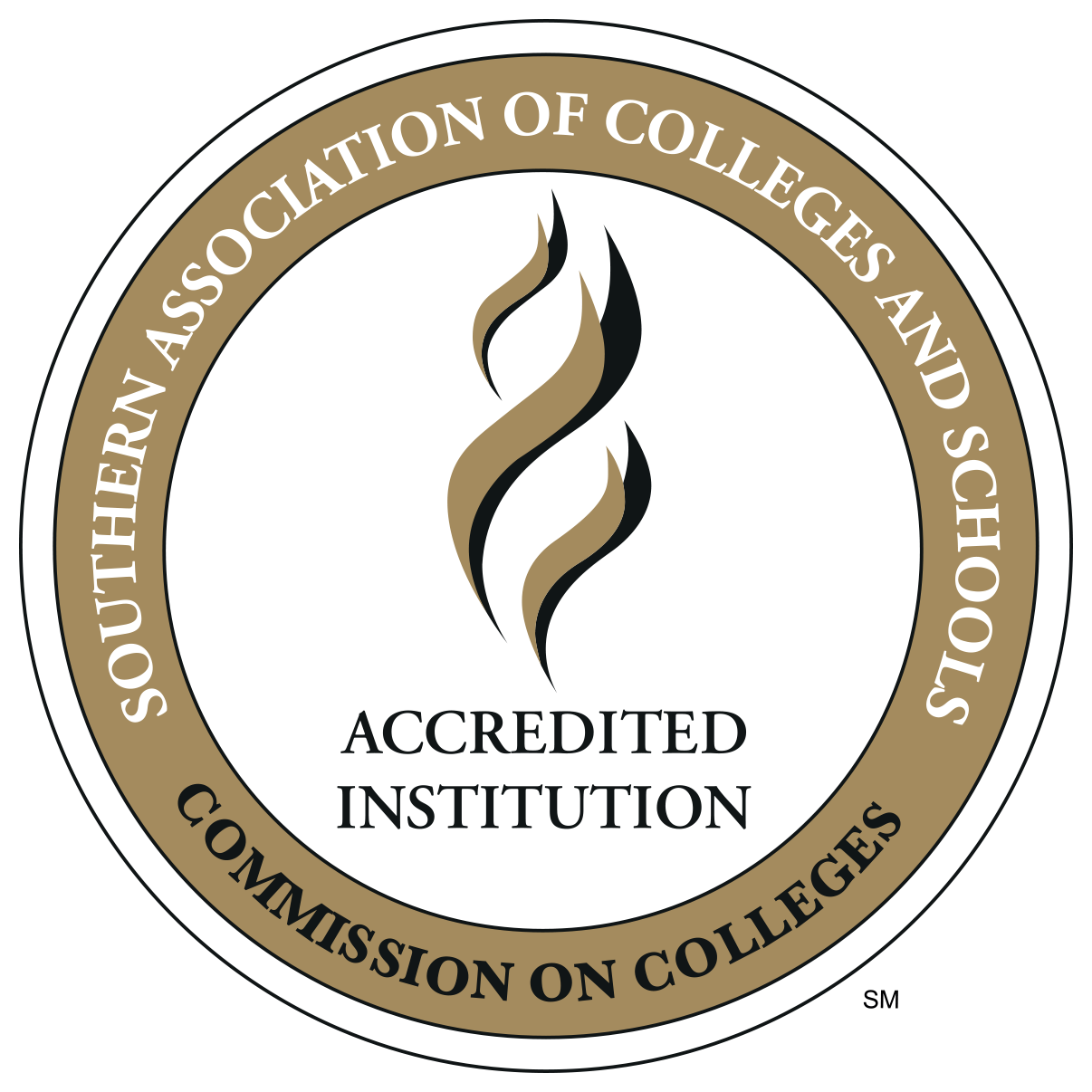What is FERPA?
The Family Educational Rights and Privacy Act is a Federal law that protects the privacy of student education records. The law applies to all schools that receive funds under an applicable program of the U.S. Department of Education.
FERPA gives parents certain rights with respect to their children’s education records. These rights transfer to the student when he or she reaches the age of 18 or attends a school beyond the high school level. Students to whom the rights have transferred are “eligible students.”
Student Records Notification of Rights under FERPA
The Family Educational Rights and Privacy Act (FERPA) affords students certain rights with respect to their education records. These rights include:
1. The right to inspect and review the student’s educational records within 30 days of the day the College receives a request for access. Students should submit to the registrar written requests that identify the record(s) they wish to inspect. The registrar will make arrangements for access and notify the student of the time and place where the records may be inspected. If the records are not maintained by the registrar, the student will be informed as to the correct official to whom the request should be addressed.
2. The right to request amendment of the student’s education records that the student believes are inaccurate or misleading. Students may ask the College to amend a record that they believe is inaccurate or misleading. They should write the College official responsible for the record, clearly identify the part of the record they want changed, and specify why it is inaccurate or misleading. If the College decides not to amend the record as requested by the student, the College will notify the student of the decision and advise the student of his or her right to a hearing regarding the request for amendment. A hearing will be conducted upon written request to the president. Additional information regarding the hearing procedures will be provided to the student when notified of the right to a hearing. A student who conducts an unsuccessful appeal to the College, and whose records are not amended by the College, may place a statement in their education record commenting upon the information therein, and/or setting forth any reason for disagreement. Such a statement by a student shall become part of the student’s record and disclosed with it. A student who wishes to challenge a specific grade must first consult with the faculty member. If the situation is not resolved, the student may consult with the appropriate academic vice president. Final appeal shall be to the Campus Appeals Board.
3. The right to consent to disclosures of personally identifiable information contained in the student’s education records, except to the extent that FERPA authorizes disclosure without consent. According to FERPA the College may release information without the student’s written consent to the following or under the exceptions noted below:
a. To school officials, as identified by the College, determined to have a legitimate educational interest,
Note: A school official is a person employed by the College in an administrative, supervisory, academic or research, or support staff position (including law enforcement unit personnel and health staff); a person or company with whom the College has contracted (such as an attorney, auditor, or collection agent); contractors, consultants, volunteers and other outside parties to whom the College has outsourced institutional services or functions; a person serving on the Area Commission; or a student serving on an official committee, such as a disciplinary or grievance committee, or assisting another school official in performing his or her tasks. A school official has a legitimate educational interest if the official needs to review an education record in order to fulfill his or her professional responsibility.
b. Upon request, to officials of other institutions in which the student seeks or intends to enroll, or where the student is already enrolled so long as the disclosure is for purposes related to the student’s enrollment or transfer,
c. To persons or organizations providing financial aid to the student, or determining financial aid decisions,
d. To accrediting organizations carrying out their accrediting functions,
e. To persons in compliance with a judicial order or a lawfully issued subpoena,
f. To persons in an emergency, if the knowledge of information, in fact,
is necessary to protect the health or safety of the student or other persons, including release to student’s parents,
g. To parents of dependent students,
h. To organizations conducting studies for or on behalf of educational agencies or institutions,
i. To authorized representatives of The Comptroller General of the United States, the Attorney General of the United States, The Secretary, or state and local educational authorities,
j. After removal of all personally identifiable information provided that the institution has made a reasonable determination that a student’s identity is not personally identifiable, whether through single or multiple releases, and taking into account other reasonably available information.
k. Transcripts, recommendations, etc. that appear to have been falsified may be returned to the sending/creating institution or school official in order to confirm authenticity, allow for denying accuracy of the record, and to send a correct version.
l. In compliance with The Patriot Act, The Campus Sex Crimes Prevention Act, and The Clery Act.
m. In connection with legal actions between the institution and the student.
4. The right to file a complaint with the U.S. Department of Education concerning alleged failures by the College to comply with the requirements of FERPA. The name and address of the office that administers FERPA is:
Family Policy Compliance Office
U.S. Department of Education
400 Maryland Avenue SW
Washington, DC 20202-4605
5. Directory Information: FERPA permits institutions to identify certain items of information as “directory information.” Directory information may be released to third parties without the consent of the student, unless the student specifies in writing to the registrar that the information is not to be released. No directory information will be released without the student’s
authorization during the first ten days of a semester to allow students time to file a non release request with the registrar. While directory information may be released, FGC prefers to protect the privacy of our students by not disclosing lists of students for commercial purposes, except as related to specific contractual arrangements as part of college business operations.
The following items are considered directory information at Denmark Technical College.
• Student’s name
• Date and place of birth
• Major field of study
• Dates of attendance
• Degrees and awards received
• Most recent educational institution attended by the student
• Enrollment status
• Full or part-time status
• Weight and height of athletic team members
• County of residence
• Participation in officially recognized activities and sports
• Student’s photograph
Nondirectory information may be released to state and governmental agencies in accordance with state and federal guidelines. Upon request, DTC provides lists of graduate names and addresses to upper division transfer institutions if there is a transfer articulation agreement with the institution at the time of the request.
6. Copies of Records: Copies of material in a student’s record will be furnished to the student upon written or personal request. There may be a nominal charge for duplication of records materials. Denmark Technical College does not provide copies
of other institution’s records or transcripts to students or forward them to other institutions.
7. Rights of Parents: Once a student is enrolled as a postsecondary student, parents have no inherent rights to inspect a student’s educational records. However, records may be released to parents if:
a. The student gives written consent,
b. A subpoena is issued, or
c. The parent(s) submits evidence to the registrar that the student is claimed as a dependent on their most recent Federal Income Tax form.
The College does have the right to notify the parents if the student is under the age of 21 and the College determines that the student has committed a disciplinary violation with respect to the use or possession of alcohol or a controlled substance.
8. Waiver of Confidentiality: A student may request that their records be released to another individual, organization, or institution. This consent to release records must be in writing, signed and dated, and specify: a) the records to be released, b) the purpose of the disclosure, and c) the party (or parties) to whom disclosure may be made. The College has appointed Parchment. as its official transcript provider. Transcript requests are submitted online through links on the DTC webpage. More detailed information is available on the web page.
9. Denial of Transcript Access: Student transcripts may not be released if a student owes an obligation in money or property to the College or fails to pay the required transcript fee, if applicable.

